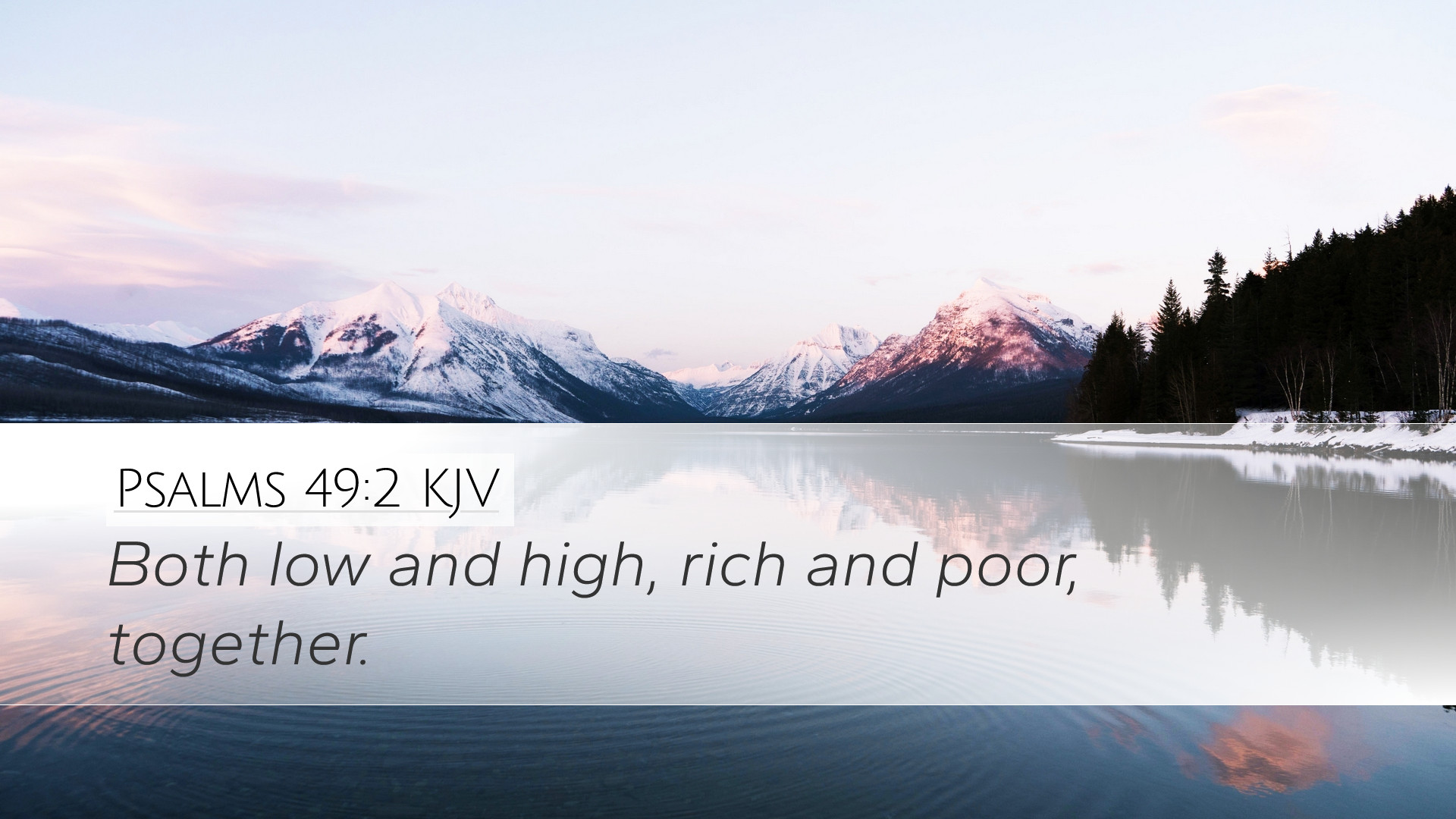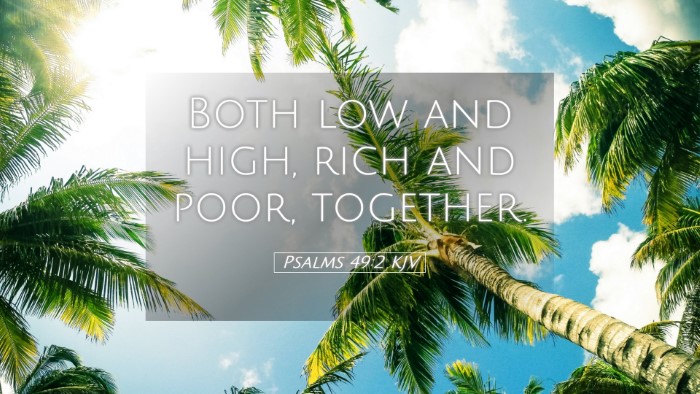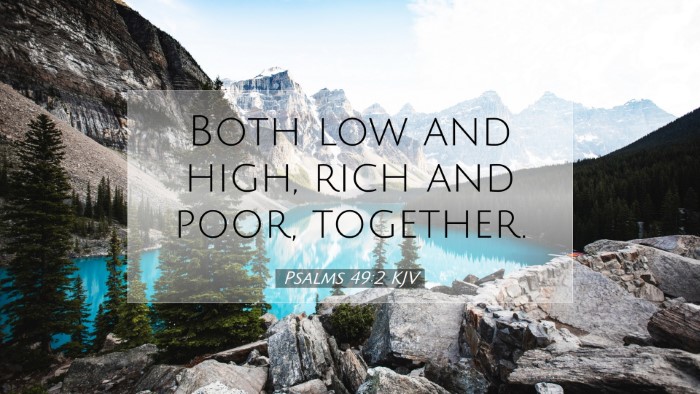Psalms 49:2 Commentary
Bible Verse: "Both low and high, rich and poor, together." (Psalms 49:2)
Introduction
This verse from the Book of Psalms encapsulates a profound truth about human equality in the face of mortality. Various public domain commentaries, particularly those of Matthew Henry, Albert Barnes, and Adam Clarke, provide deep insights into the implications of this verse for individuals, communities, and the broader theological landscape.
Textual Analysis
Psalms 49:2 presents a universal statement regarding the conditions of humanity, emphasizing that regardless of one’s status—whether low or high, rich or poor—everyone is included in the message that follows. This verse suggests a commonality among people, pointing towards themes of humility and the inevitability of death.
- Universal Application: The verse speaks to every person without exceptions. It transcends social, economic, and spiritual divisions, making it pertinent to all.
- Mortal Reality: It sets the stage for reflecting on the transient nature of wealth and status, reminding the reader that in death, earthly distinctions hold no value.
Insights from Matthew Henry
Matthew Henry, in his commentary, underscores the universal condition of humanity. He notes that the phrase "low and high" contrasts different social classes, reinforcing that God's judgment applies equally to all. Henry states:
"In the sight of God, the distinctions made by men vanish away; for what can be more common than death?"
This highlights that death is the great equalizer, a theme that resonates throughout the scriptures and serves as a solemn reminder of the fate awaiting all individuals, transcending their social standings.
Insights from Albert Barnes
Albert Barnes, in his reflections, expands on the implications of this verse for understanding human pride and materialism. He articulates that wealth offers no immunity from divine judgment or the grave. Barnes asserts:
"The rich and the poor meet together in the grave, and the pomp and pride of life will be forgotten."
He emphasizes that true wisdom lies in recognizing the fleeting nature of earthly pursuits and seeking what is eternally valuable. Barnes calls upon the reader to live with the awareness of life's brevity and the certainty of death, leading to a life lived in humility and devotion to God.
Insights from Adam Clarke
Adam Clarke brings an additional layer of interpretation to this scripture by highlighting the sociopolitical implications. He views the verse as a commentary on the vanity of trust in riches and status in the sight of God. Clarke notes:
"Let not the rich man boast in his riches, nor the poor man despair in his low condition. Both have a common fate."
Clarke’s observations encourage believers to focus on spiritual wealth—faith, relationships, and eternal life—which cannot be taken away by death. He urges that the focus should not be on social status but on character and true values as determined by God.
Theological Implications
This verse holds significant theological implications for discussions around justice, humility, and the nature of God’s kingdom. It highlights several key ideas:
- Equality Before God: The assertion that both the rich and the poor stand equal emphasizes that God’s concern is for the heart rather than outward appearances or earthly success.
- Hope Beyond Death: Understanding that earthly life is preparation for eternity brings comfort, promising that no earthly struggle is forgotten by God.
- Call to Humility: Believers are called to consider their standing before God rather than before men, which fosters a culture of humility within faith communities.
Conclusion
Psalms 49:2 serves as a powerful reminder of the universality of human existence and the equality we all share in mortality. The commentaries of Henry, Barnes, and Clarke converge on the necessity of recognizing our common fate, urging readers—be they pastors, theologians, or laypersons—to live with purpose and humility. By engaging deeply with these reflections, one can glean valuable lessons on faith, lifestyle choices, and the pursuit of eternal values over temporal gains.
Engaging with this verse and its implications challenges individuals to reassess their priorities, cultivate a deeper understanding of their shared humanity, and ultimately, to seek a life anchored in the truth of God’s love and justice.


